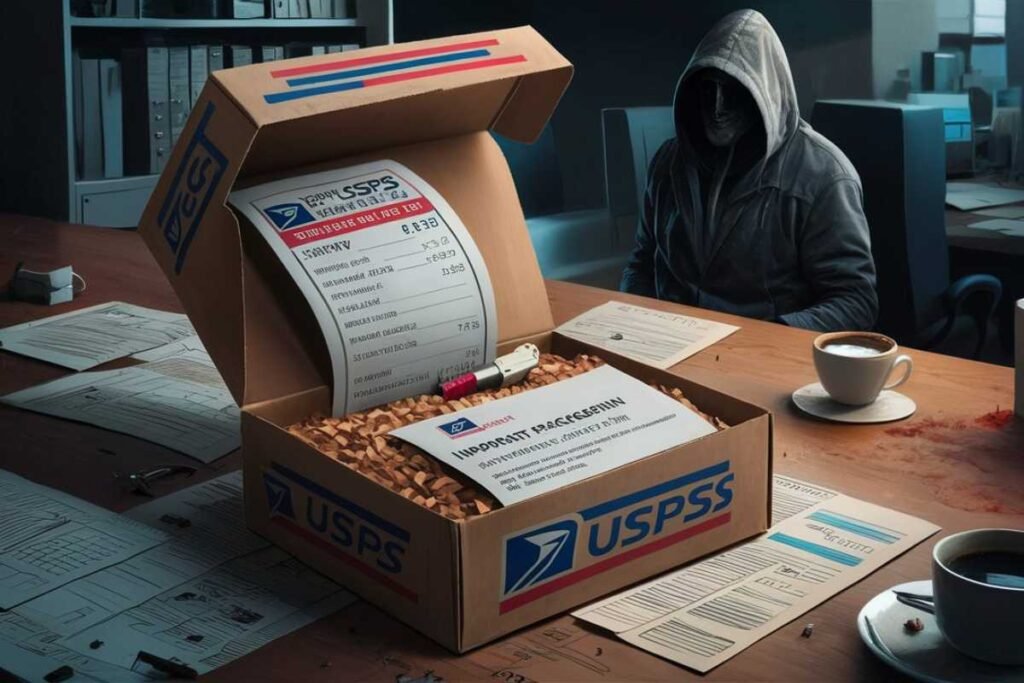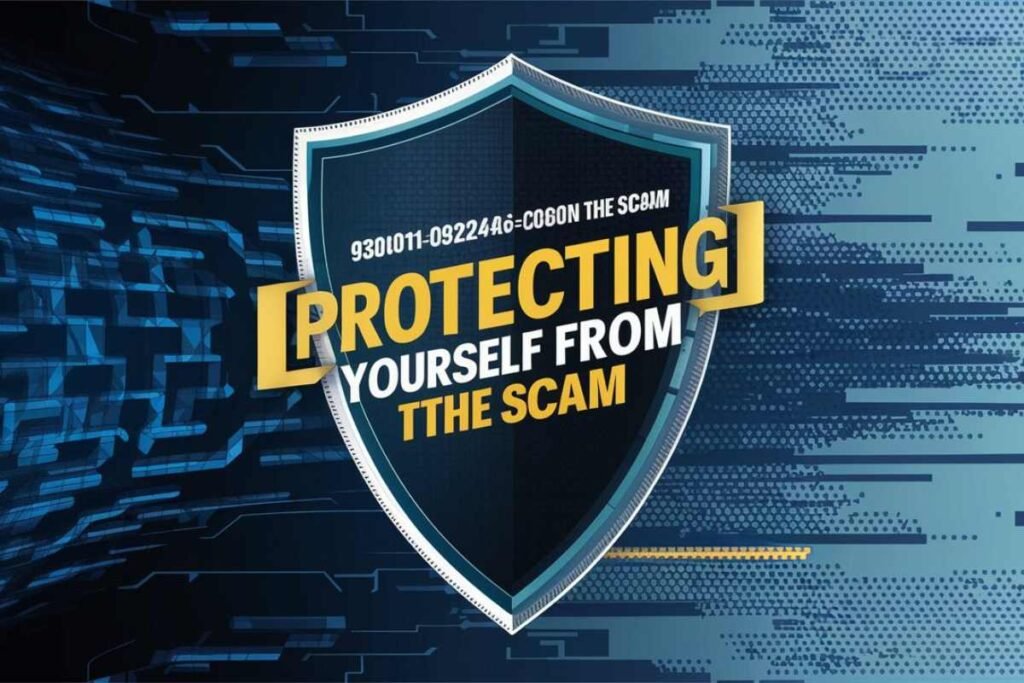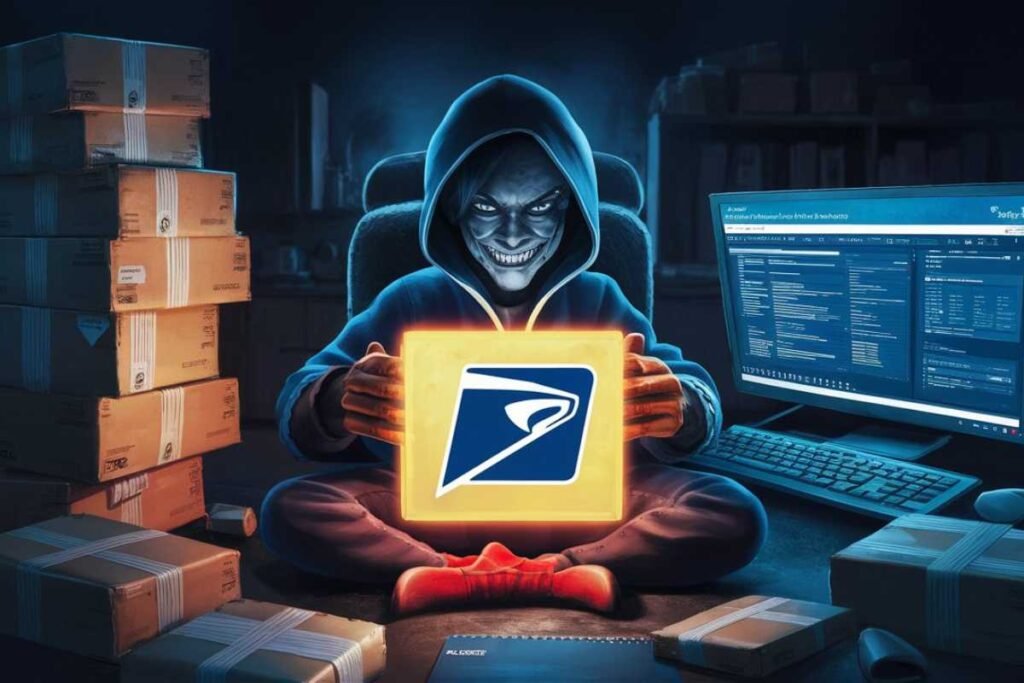Table of Contents
In recent times, online scams have become increasingly sophisticated, with scammers employing various tactics to deceive unsuspecting individuals.
One such scam that has gained traction is the 93001109246000000113602978 USPS Package Scam.
This deceptive scheme targets recipients with fake delivery notifications, purportedly from the U.S. Postal Service (USPS), using the tracking number “93001109246000000113602978” to lend an air of legitimacy.
However, behind this guise lies a nefarious attempt to steal personal and financial information.
How Does the Scam Work?

The modus operandi of the 93001109246000000113602978 USPS Package Scam involves sending out fraudulent text messages or emails, informing recipients that they have a package awaiting delivery from USPS.
These messages typically include a link to track the package’s status. Upon clicking the link, recipients are directed to a counterfeit website designed to mimic the official USPS site.
Once on the fake website, victims may be prompted to provide sensitive information such as their name, address, credit card details, or login credentials under the guise of verifying their identity or completing the delivery process.
However, this information is harvested by scammers for illicit purposes, such as identity theft or financial fraud.
The Exploitation of USPS Tracking Numbers
Central to this scam is the exploitation of legitimate USPS tracking numbers, such as “93001109246000000113602978.”
Scammers acquire these tracking numbers by shipping inexpensive items to themselves or to random addresses, thereby obtaining a valid tracking number associated with a USPS delivery.
They then use this tracking number in their deceptive messages to lend credibility to their scam.
Protecting Yourself from the Scam

To avoid falling victim to the 93001109246000000113602978 USPS Package Scam and similar phishing attacks, it is essential to exercise caution and adopt the following precautions:
Verify Message Authenticity
When you receive any unexpected messages purportedly from USPS, particularly those mentioning tracking numbers like “93001109246000000113602978,” it’s crucial to scrutinize them carefully.
Pay close attention to details such as grammatical errors or unusual sender addresses, as these can be telltale signs of phishing attempts.
Scammers often rely on these discrepancies to trick unsuspecting individuals into divulging personal information or clicking on malicious links.
By remaining vigilant and questioning the authenticity of such messages, you can protect yourself from falling victim to phishing scams like the 93001109246000000113602978 USPS Package Scam.
Use Official Channels
Instead of taking the risk of clicking on links embedded in unsolicited messages, it’s safer to opt for direct access to the official USPS website or utilize the USPS mobile app for package tracking.
By bypassing links provided in potentially fraudulent messages and accessing USPS services through trusted channels, you significantly reduce the likelihood of encountering counterfeit websites designed to steal your information.
This proactive approach ensures that you’re securely engaging with legitimate USPS services, minimizing the possibility of falling prey to deceptive schemes like the 93001109246000000113602978 USPS Package Scam.
Guard Personal Information
It’s crucial to exercise caution when it comes to sharing sensitive information like your Social Security number, credit card details, or login credentials, especially in response to unsolicited messages or on unfamiliar websites.
Legitimate entities such as USPS would typically not solicit such confidential data via text or email. Scammers often exploit these channels to trick individuals into divulging personal information, which they then use for fraudulent activities.
By remaining vigilant and refraining from sharing sensitive information in response to unsolicited communications, you can protect yourself from potential identity theft or financial fraud.
This simple precaution can help safeguard your personal and financial well-being against threats like the 93001109246000000113602978 USPS Package Scam.
Report Suspicious Activity
If you find yourself in possession of a suspicious message linked to the 93001109246000000113602978 USPS Package Scam or any similar fraudulent activity, it’s imperative to report it promptly to USPS authorities.
By doing so, you not only protect yourself but also contribute to the prevention of others falling victim to the same scam.
Reporting suspicious messages enables USPS to take necessary action, such as issuing warnings, investigating fraudulent activities, and potentially shutting down malicious operations.
Your vigilance and proactive reporting can help stem the spread of scams like the 93001109246000000113602978 USPS Package Scam, safeguarding individuals from potential financial loss and identity theft.
Conclusion
In conclusion, the 93001109246000000113602978 USPS Package Scam serves as a stark reminder of the evolving landscape of online fraud and the importance of staying vigilant against such threats.
By understanding the tactics employed by scammers and adopting proactive measures to protect personal information, individuals can mitigate the risks associated with phishing attacks and safeguard themselves from financial loss and identity theft.
Through collaboration with USPS authorities and reporting suspicious activity, we can collectively work towards combating these scams and creating a safer online environment for all.
FAQs
What is the 93001109246000000113602978 USPS Package Scam?
It’s a deceptive scheme where scammers send fake USPS delivery notifications using the tracking number “93001109246000000113602978” to trick recipients into disclosing personal information.
How do scammers operate in this scam?
Scammers send fraudulent messages claiming recipients have a package from USPS, directing them to counterfeit websites to input personal information under the guise of verifying delivery.
How do scammers obtain legitimate USPS tracking numbers?
They acquire valid tracking numbers by shipping inexpensive items to themselves or random addresses, then use these numbers to lend credibility to their scam messages.
What precautions can individuals take to avoid falling victim to this scam?
Verify message authenticity, use official USPS channels for tracking, safeguard personal information, and report suspicious activity promptly to USPS authorities.
What are telltale signs of phishing attempts in these scam messages?
Look out for grammatical errors, unusual sender addresses, and requests for sensitive information like Social Security numbers or credit card details.
How can individuals securely engage with USPS services?
Opt for direct access to the official USPS website or use the USPS mobile app for package tracking instead of clicking links in unsolicited messages.
Why is it crucial to guard personal information in response to unsolicited messages?
Legitimate entities like USPS wouldn’t solicit sensitive data via text or email, so refrain from sharing such information to protect against identity theft and fraud.
Why should individuals report suspicious activity related to this scam?
Reporting helps prevent others from falling victim, enables USPS to issue warnings, investigate fraudulent activities, and potentially shut down malicious operations.
Can proactive reporting help combat scams like the 93001109246000000113602978 USPS Package Scam?
Yes, by collaborating with USPS authorities and promptly reporting suspicious activity, individuals contribute to creating a safer online environment for everyone.
What is the significance of understanding and staying vigilant against evolving online scams?
It’s essential to stay informed about scams like the 93001109246000000113602978 USPS Package Scam and adopt proactive measures to protect personal information and financial well-being in today’s digital landscape.


